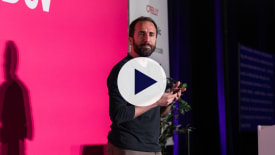
Latest
-

What 7 years as a contractor taught me about onboarding
How to enable your developers to make an instant impact.
-
Who wants to be an engineering manager anyway?
Is management still worth climbing the ladder for in 2026?
-
Clean up org debt with systems thinking
Applying engineering fundamentals to team management can get you a lot further than you think.
-

The uncomfortable middle: Growing as a Director in uncertain times
Grow as a leader of leaders through reorgs, role shifts, and team tensions in the messy middle of uncertainty.
Editor’s picks
1:1s Foundations: best practices for conversations that count
Building a safe space during your one-to-one meetings, where your direct report can be open and honest
Performance season made easy with this proven strategy
Performance review seasons are tense times for managers and reports alike. Here’s a system to smooth the process over.

London • June 2 & 3, 2026
LDX3 London agenda is live! 🎉
Essential reading
Reasons to step into a leadership role (and the reasons not to)
Thinking of becoming an engineering leader? Let Pat Kua help you with the first step of the journey.
On our Engineering Management playlist

It’s time to pay off your management debt
Explore management debt’s impact on organizations, uncovering inefficiencies and missed opportunities. Learn actionable strategies to identify, track, and eliminate management debt for sustainable growth.

Resilient Management: Lara Hogan in conversation
Resilient Management is a guide to building, inspiring and leading resilient teams

Managing authentically across levels
Learn how to manage engineers at all levels with practical tips for adapting your style to support growth and foster a thriving, high-performing engineering team.

Effective communication: Mastering growth-oriented feedback
Discover strategies for delivering feedback that builds trust and openness. Learn science-backed techniques to make feedback constructive, approachable, and growth-focused, helping teams unlock their full potential.

Tactics for developing junior engineers
How to plan out intentional time for junior talent to be as productive as possible
More about Engineering Management
-
Three habits to thrive in your first engineering leadership role
Find your north star, grow your support network, and practice inquiry before answer
-
Evaluating 1:1s: clear signs they’re going well or off the rails
Making the commitment to becoming the best manager you can be
-
Imposter syndrome: why you need it
Everyone thinks imposter syndrome is bad, but what if we could harness it for growth?
Top Engineering Management Videos
-

Managing compassionately through underperformance
You’ve identified that a person is underperforming. What comes next? Senior Engineering Manager Adrienne Lowe will identify what you should do to help manage someone out of underperformance
-

Managing performance with clarity and empathy
How can you even tell if someone is underperforming? Senior Director of Engineering at SlackHQ Rod Garcia looks at how to write and communicate clear expectations and gain the confidence to address underperformance.
-

Software Engineering at Google: Lessons Learned from Programming Over Time
What do good engineering processes and tools look like?
-

Empower your teams to do their best work
As a senior leader, this talk builds upon the fundamental concepts with a focus on leveraging your team’s work for impact.
-

Raising the subject of raises
This talk gives some practical advice and things to keep in mind when you are considering what type of pay raise to make. I’ll also provide some points to make the salary discussions in your performance reviews easier.
-

Addressing technical skills gaps in your engineering team
Identify and fill training gaps that slow you down.
-
The delegation equation
In this storytelling session Leslie Chapman, Distinguished Engineer, will explore the right ways and times to delegate, and the pitfalls of not delegating properly.
-

Creating and executing achievable goals for your high performance team
Tips to set and help your team execute their goals

